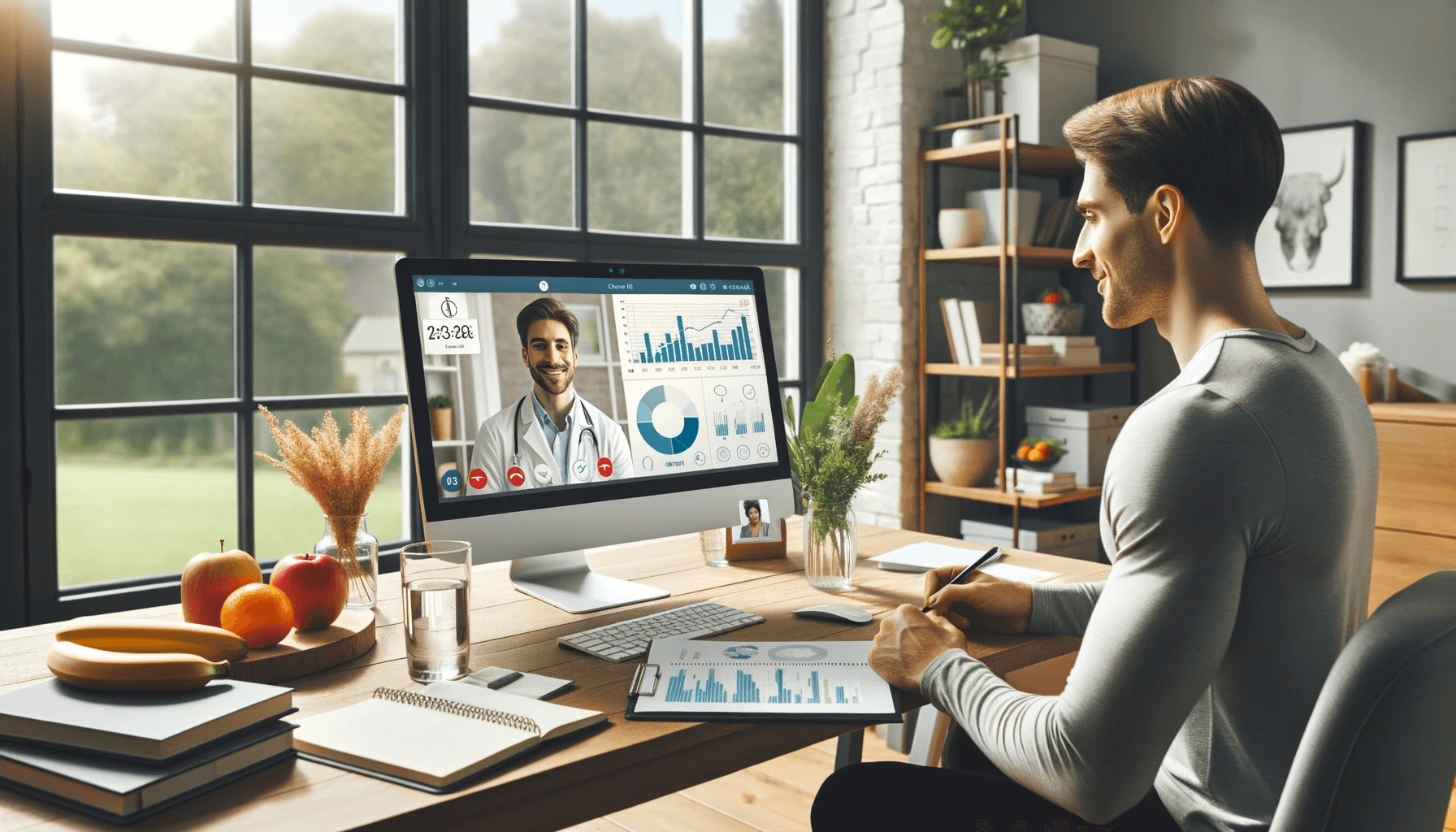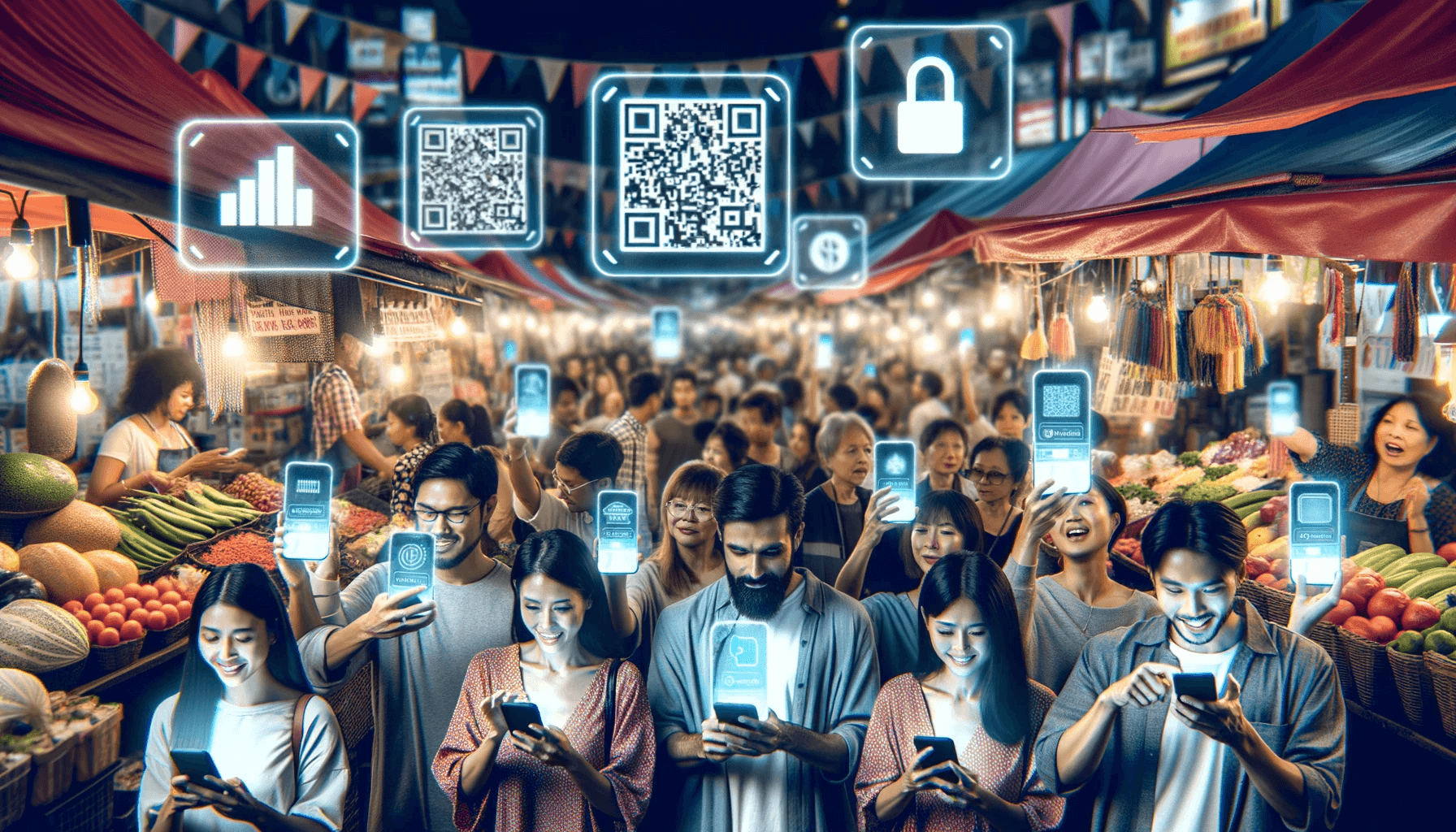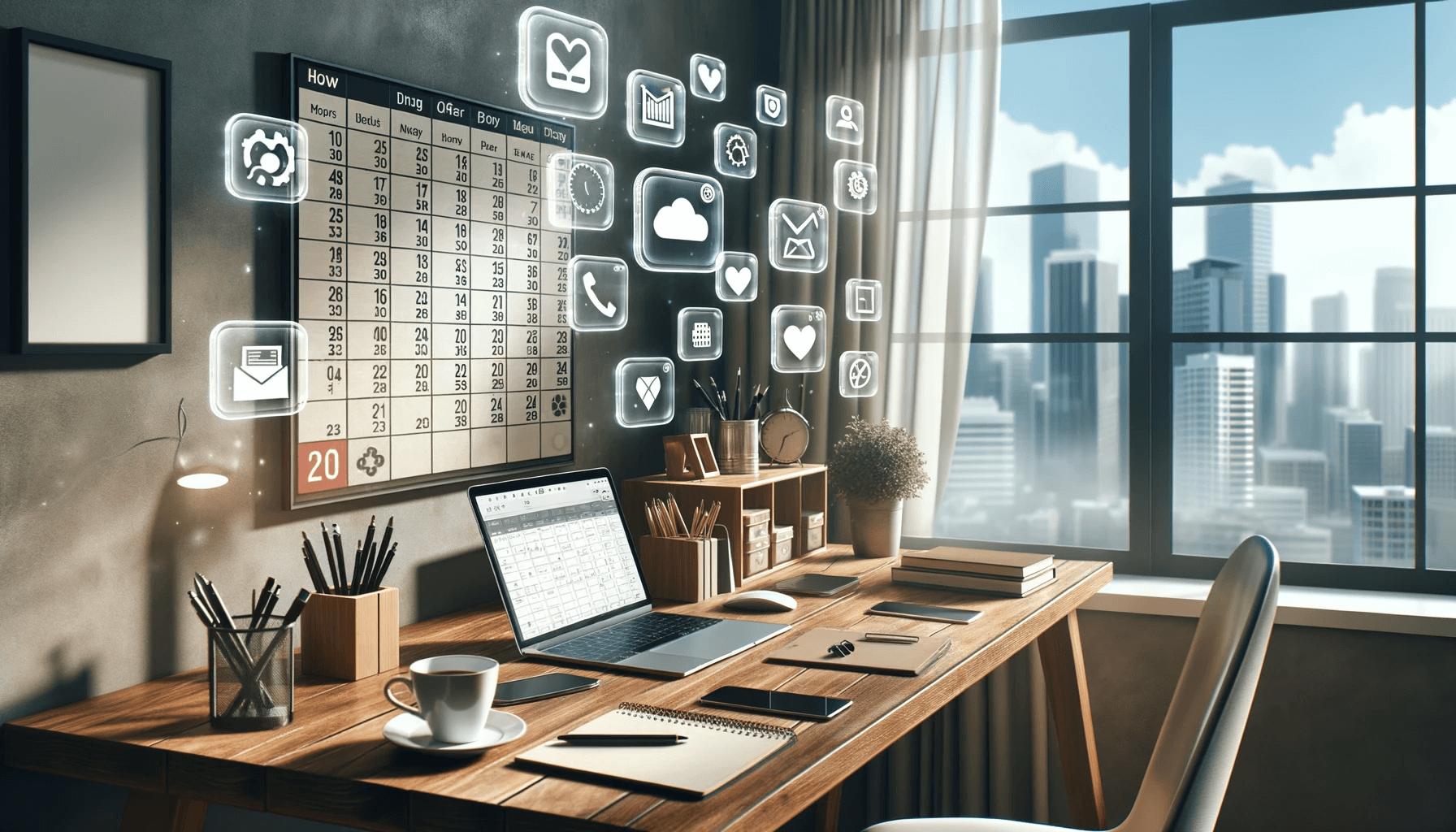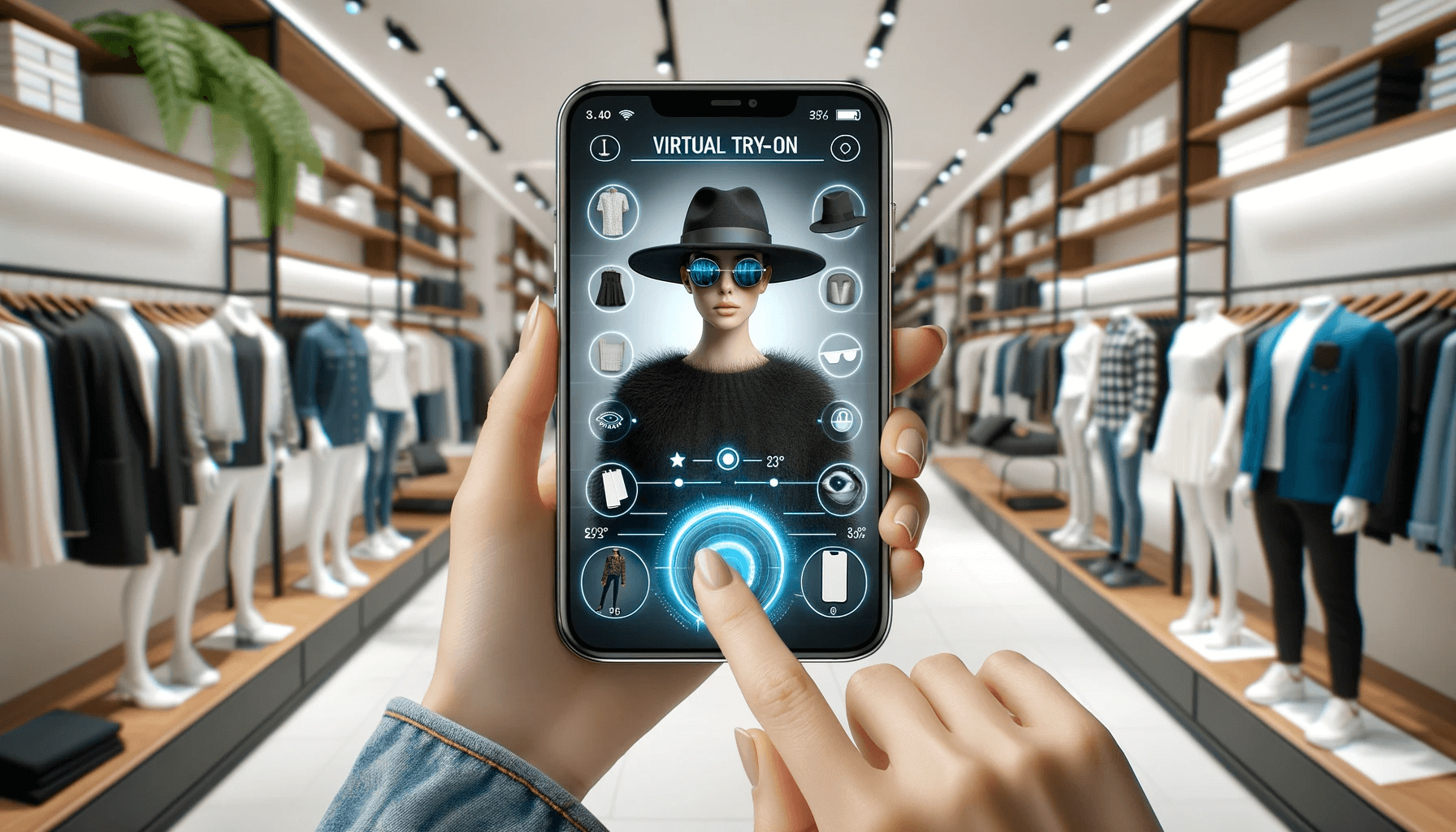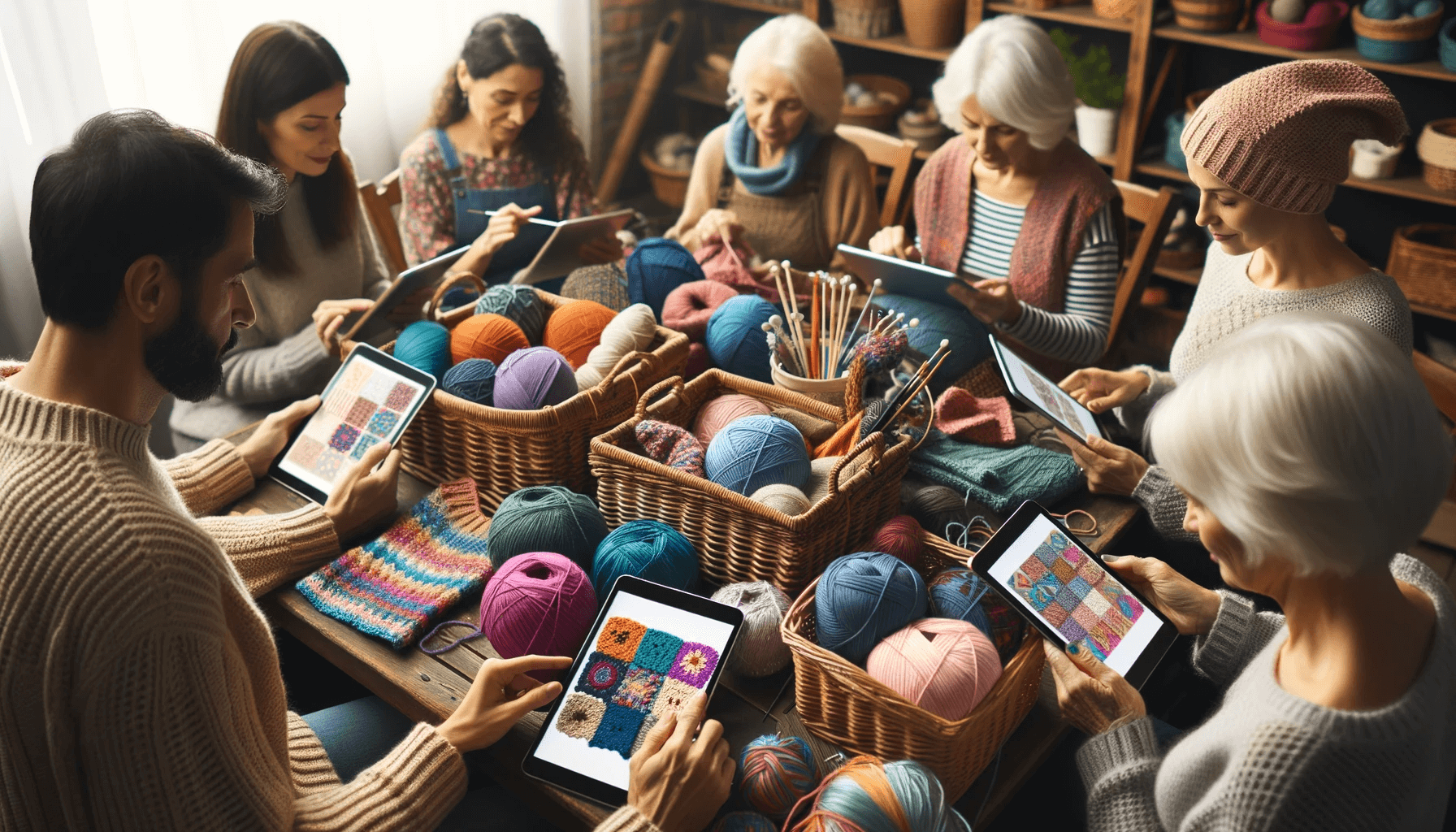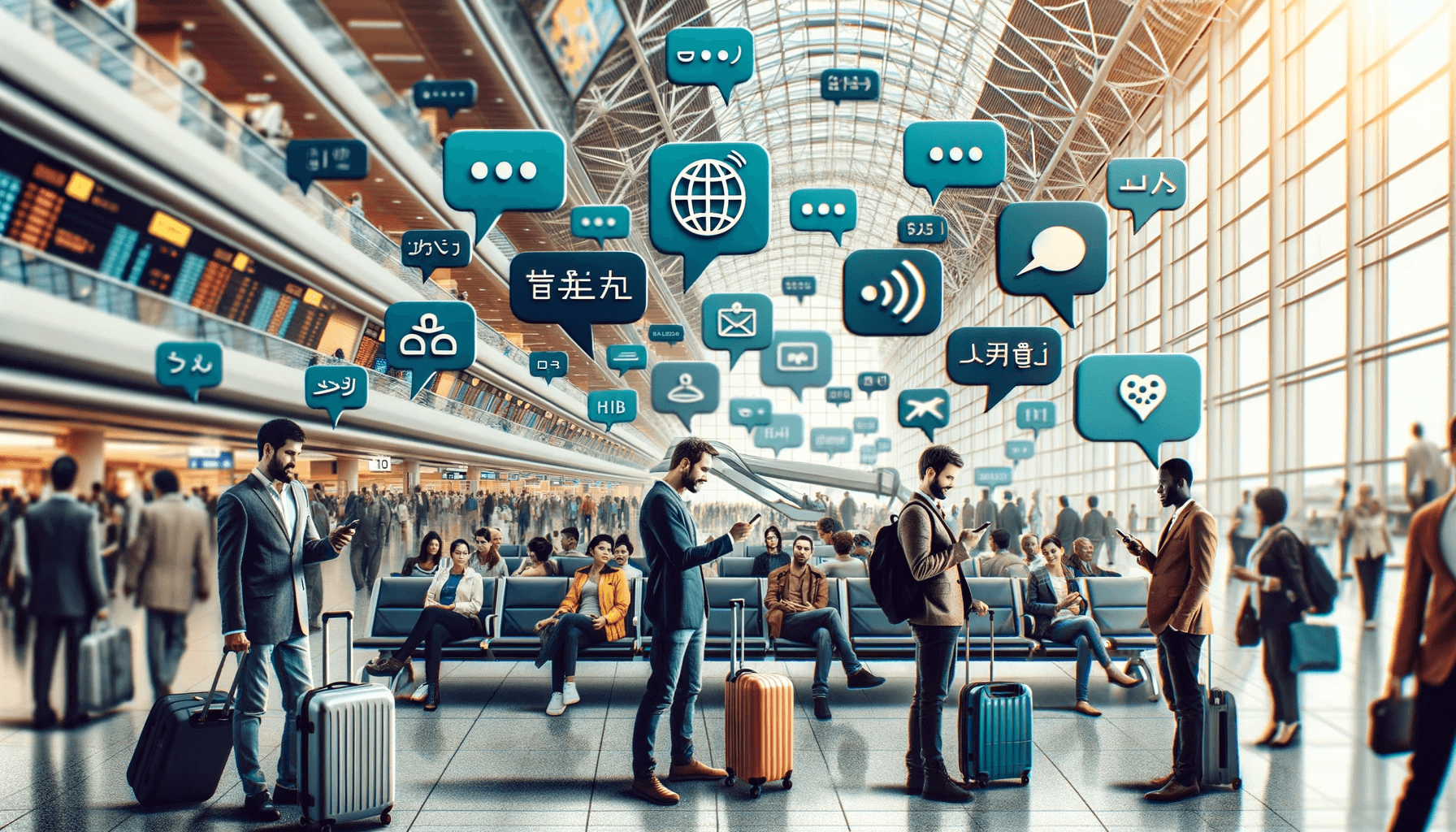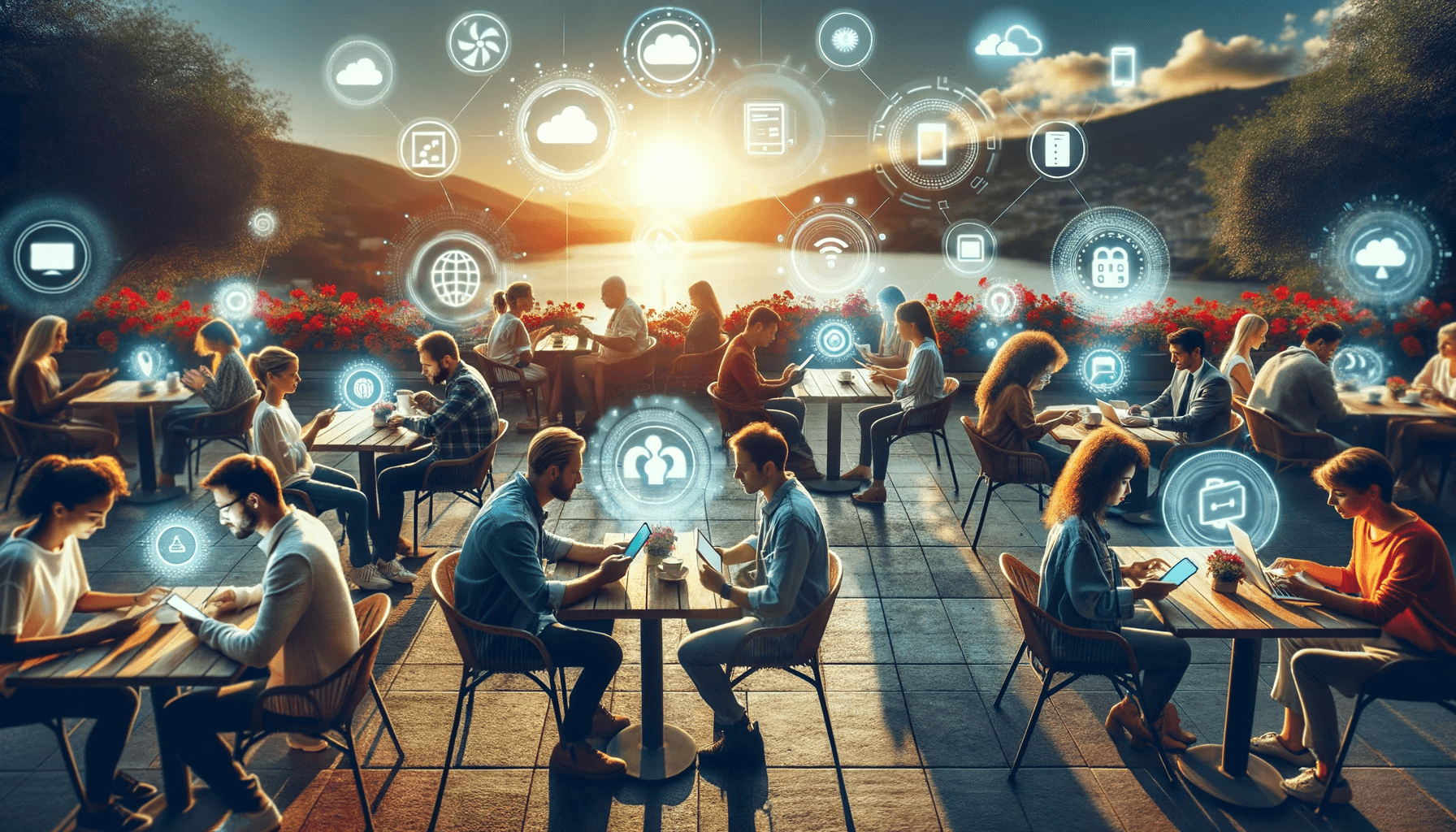The rise of mobile apps has brought about a significant transformation in the healthcare industry, particularly in the realm of remote healthcare consultations. In recent years, there has been a boom in the use of mobile apps for accessing healthcare services remotely. Remote healthcare consultations involve receiving medical advice, diagnoses, and treatment from healthcare professionals through virtual platforms. This allows patients to consult with doctors without the need for in-person visits to clinics or hospitals.
Remote healthcare consultations work by utilizing various technologies such as video calls, chat applications, and secure data sharing platforms. Patients can connect with healthcare providers through these mobile apps and receive medical guidance from the comfort of their own homes.
There are several advantages to utilizing remote healthcare consultations. Firstly, it offers convenience and accessibility, allowing patients to seek medical advice anytime and anywhere. It also helps in cost-savings by eliminating the need for travel expenses and reducing overall healthcare costs. Remote consultations save time by minimizing travel and waiting times typically associated with in-person visits. Furthermore, patients can enjoy increased privacy during these consultations as they can discuss sensitive medical issues from the privacy of their homes.
The importance of mobile apps in facilitating remote healthcare consultations cannot be overstated. These apps provide a secure communication platform for patients and healthcare providers to interact and share medical information. They enable virtual examination and diagnosis, allowing doctors to gather essential medical data remotely. Mobile apps also support the remote monitoring of patients’ health conditions, enabling healthcare professionals to track their progress and provide necessary interventions.
Some popular mobile apps for remote healthcare consultations include telemedicine apps that connect patients with doctors, and health monitoring apps that allow individuals to monitor and track their health vitals.
However, there are considerations and challenges associated with remote healthcare consultations. Physical examinations may be limited due to the lack of in-person interaction, and certain technological limitations may hinder the quality of consultations. There might be concerns regarding information security and privacy when sharing sensitive medical data through mobile apps.
Nonetheless, the future of remote healthcare consultations seems promising. Advancements in technology and the growing demand for convenient and accessible healthcare services suggest that remote consultations will continue to expand and offer new possibilities for patients and healthcare providers alike.
Key takeaways:
- Convenience and accessibility: Mobile apps enable convenient and accessible remote healthcare consultations, providing patients with easy access to medical professionals anytime and anywhere.
- Cost-savings: Remote healthcare consultations through mobile apps can help reduce healthcare costs by eliminating the need for in-person visits, transportation expenses, and reducing hospitalization rates.
- Secure communication and data sharing: Mobile apps provide secure platforms for patients and healthcare providers to communicate and share sensitive medical information, ensuring privacy and confidentiality.
The Rise of Mobile Apps in Healthcare
The rise of mobile apps in healthcare has revolutionized the way people access medical services. With the convenience of smartphones, individuals can now consult healthcare professionals remotely, saving time and improving access. Mobile apps offer a range of services, including online consultations, prescription refills, and health tracking. These apps provide a platform for patients to connect with doctors, nurses, and specialists from the comfort of their homes. In addition to convenience, mobile apps in healthcare promote patient empowerment, allowing individuals to actively participate in their own healthcare management. The rise of mobile apps in healthcare is set to continue, transforming the way healthcare is delivered.
As more mobile apps are developed to cater to different healthcare needs, it is important for individuals to carefully choose the right app. Here are some suggestions for selecting a reliable healthcare app:
1. Research the app’s credibility: Look for reviews, ratings, and feedback from other users to ensure the app is trustworthy.
2. Check for security measures: Make sure the app has robust security features to protect your personal health information.
3. Evaluate the features and functionality: Consider what specific healthcare services you need and choose an app that offers those features.
4. Consider app compatibility: Check if the app is compatible with your device’s operating system to ensure a smooth user experience.
5. Seek professional advice: Consult with your healthcare provider to get recommendations on reliable healthcare apps that align with your specific needs.
By following these suggestions, individuals can make informed decisions and confidently embrace the benefits of the rise of mobile apps in healthcare.
What Are Remote Healthcare Consultations?
Remote healthcare consultations, also known as virtual medical appointments, are conducted through mobile apps or online platforms. This allows patients to consult with healthcare professionals remotely. These consultations encompass a range of healthcare services, including medical diagnosis, treatment recommendations, medication management, and mental health counseling. The main advantage of remote healthcare consultations is the convenience and accessibility they provide, particularly for individuals with limited mobility or residing in remote areas. Moreover, they play a significant role in promoting social distancing, which is especially important during a pandemic. Let me illustrate the impact of remote healthcare consultations with the true story of Sarah. As a busy working mother, Sarah was able to receive timely medical advice and prescriptions for her child’s health issues without leaving the comfort of her home.
How Do Remote Healthcare Consultations Work?
How Do Remote Healthcare Consultations Work?
Remote healthcare consultations involve leveraging technology to connect patients and healthcare providers remotely. Through the use of mobile apps and other communication tools, patients can consult with healthcare professionals without needing to visit a physical clinic. During these consultations, patients can discuss their symptoms, medical history, and concerns with the healthcare provider. The healthcare provider can then provide a diagnosis, offer medical advice, prescribe medications if necessary, and recommend further tests or treatments. These consultations may involve video calls, phone calls, or secure messaging platforms, allowing for convenient and accessible healthcare services from the comfort of one’s own home.
Advantages of Remote Healthcare Consultations
Advantages of remote healthcare consultations are on the rise, revolutionizing the way we access medical guidance. This section explores the game-changing benefits that come with this new era of healthcare. From the convenience and accessibility it provides to the cost-savings and reduced travel time and expenses patients can enjoy, we will uncover why remote consultations are becoming a preferred choice. The increased privacy offered by this approach empowers individuals to seek much-needed healthcare with greater ease and confidence.
Convenience and Accessibility
Convenience and accessibility are crucial advantages of remote healthcare consultations. With the increasing prevalence of mobile apps, patients now have the ability to connect with healthcare professionals at any time and from any location, eliminating the need to physically visit a clinic. This is particularly beneficial for individuals residing in rural areas or for those with limited mobility. Additionally, mobile apps offer the convenience of scheduling appointments, receiving remote diagnoses, and accessing medical records, all in one centralized platform. Moreover, these apps provide various features such as video consultations, secure messaging, and prescription delivery, thereby further enhancing accessibility and convenience for patients. As mobile apps continue to advance, the convenience and accessibility of remote healthcare consultations will only continue to improve.
The inception of telemedicine in the 1960s opened the door for healthcare professionals to provide medical advice via telephone, bringing about convenience and accessibility for patients in remote areas. Over time, technological advancements, particularly in mobile app development, have revolutionized remote healthcare consultations. Today, millions of individuals reap the benefits of virtual doctor visits, making healthcare more accessible to those who may have otherwise encountered challenges in receiving prompt medical attention. This transformation has completely changed the healthcare industry by offering a convenient and accessible alternative to traditional in-person consultations.
Cost-Savings
Remote healthcare consultations offer significant cost-savings compared to traditional in-person visits. Here are some ways in which patients can save money when utilizing remote healthcare consultations:
- No travel expenses: Patients can save on transportation costs, such as gas, parking, or public transportation fares.
- Avoidance of childcare or eldercare expenses: Remote consultations eliminate the need for additional caregiving support.
- Reduced missed work: Patients can attend appointments from home, minimizing the need to take time off work.
- No need for medical facility fees: Remote consultations eliminate any facility charges that may be associated with in-person visits.
Reduced Travel Time and Expenses
Reduced travel time and expenses are two significant advantages of remote healthcare consultations. Patients can conveniently receive medical advice without the need to travel to a clinic or hospital, saving them both time and transportation costs. This is especially beneficial for individuals in remote areas or with limited mobility, as remote consultations provide them with accessibility to healthcare services without the need for extensive travel. Moreover, remote consultations allow patients to save money on various transportation expenses, including fuel costs, parking fees, and public transportation fares. Additionally, the flexible scheduling options of remote consultations enable patients to easily incorporate healthcare appointments into their busy lives, without having to consider travel time. So, when scheduling a remote consultation, it is advisable to choose a time of day when you can be in a comfortable and quiet environment, ensuring a successful virtual healthcare experience.
Increased Privacy
Increased privacy is one of the key advantages of remote healthcare consultations through mobile apps. Patients can discuss their medical concerns and share personal information from the comfort of their own homes, ensuring confidentiality and increased privacy. Unlike traditional in-person consultations, these virtual appointments provide a secure and private environment for patients to communicate with healthcare providers. With stringent data protection measures in place, such as encrypted messaging and secure platforms, patients can have peace of mind knowing that their sensitive health information is kept confidential and their privacy is prioritized. Pro-tip: Always choose a reputable mobile app that prioritizes privacy and data security to ensure the highest level of confidentiality and increased privacy during remote healthcare consultations.
The Importance of Mobile Apps in Remote Healthcare Consultations
In the realm of remote healthcare consultations, mobile apps have emerged as crucial tools for ensuring effective communication, diagnosis, and monitoring of patients. With secure communication and data sharing functionalities, virtual examination and diagnosis capabilities, and the ability to remotely monitor patients, these apps have revolutionized the way healthcare professionals connect with their patients. Join us as we explore the significance of mobile apps in remote healthcare consultations and uncover the immense possibilities they bring to the world of healthcare.
Secure Communication and Data Sharing
Secure communication and data sharing are crucial aspects of remote healthcare consultations. Mobile apps provide a reliable platform for healthcare professionals and patients to securely communicate and share sensitive health information. Here are some key considerations for ensuring secure communication and data sharing in remote healthcare consultations:
- End-to-end encryption: To protect the confidentiality and integrity of patient data during transmission, it is important for mobile apps to utilize strong encryption techniques.
- User authentication: Robust authentication mechanisms, including two-factor authentication, should be implemented to ensure that only authorized individuals can access sensitive information.
- Data storage and privacy: Mobile apps must strictly adhere to privacy regulations and implement secure data storage practices to prevent unauthorized access or breaches.
- Secure file sharing: Healthcare providers should use secure file transfer protocols to share medical records, test results, and other important documents with patients securely.
- Secure messaging: Mobile apps should offer secure messaging capabilities that allow secure communication between healthcare providers and patients, safeguarding the privacy and confidentiality of the conversations.
Secure communication and data sharing are essential for maintaining the confidentiality and privacy of patient information in remote healthcare consultations. Mobile apps play a significant role in providing a secure platform for seamless and secure communication between healthcare professionals and patients.
In 2020, the healthcare industry experienced a major data breach when a popular telemedicine app had a security flaw, exposing the personal and medical information of millions of patients. This incident emphasized the importance of prioritizing secure communication and data sharing in remote healthcare consultations. Consequently, stricter regulations and enhanced security measures were implemented to safeguard patient privacy and protect against potential data breaches in the future. Today, mobile apps in remote healthcare consultations are equipped with advanced security features, ensuring secure communication and data sharing for the benefit of patients and healthcare providers alike.
Virtual Examination and Diagnosis
Virtual examination and diagnosis through mobile apps have completely transformed the healthcare industry by introducing remote access to medical professionals. Here is a comprehensive step-by-step explanation of how virtual examination and diagnosis exactly work:
- The patient initiates a virtual consultation with a healthcare provider via a mobile app, utilizing the benefits of virtual examination and diagnosis.
- The healthcare provider efficiently gathers the necessary medical history and carefully evaluates the symptoms presented by the patient.
- By utilizing video conferencing, the provider visually examines the patient, keenly observing any visible symptoms or concerns.
- Based on the thorough examination, the provider effectively makes a preliminary diagnosis or suggests further tests to arrive at a conclusive diagnosis.
- Treatment options are meticulously discussed, and the provider may conveniently prescribe medication or order essential medical supplies.
- Safe and convenient follow-up appointments are then conveniently scheduled to closely monitor the patient’s progress and make any necessary adjustments to the treatment plan as needed.
Virtual examination and diagnosis have not only significantly enhanced convenience and accessibility in healthcare but have also repeatedly proven to be highly effective in emergency situations. A compelling study conducted in 2016 astonishingly revealed that telemedicine consultations remarkably reduced hospital admissions by an impressive 33% and emergency department visits by a substantial 25%. Individuals with limited mobility or residing in remote areas have greatly benefited from the unparalleled ease of accessing healthcare from the comfort of their homes or distant locations.
Remote Monitoring of Patients
Remote monitoring of patients is an essential element in remote healthcare consultations, enabling healthcare providers to monitor patients’ health from a distance. The process of remote monitoring involves several steps:
- Collecting data: Wearable devices or remote monitoring equipment are used to measure vital signs, including blood pressure, heart rate, and oxygen levels.
- Transmitting data: The collected data is securely transmitted to healthcare providers through mobile apps or cloud-based platforms.
- Analyzing data: Healthcare professionals carefully analyze the received data to monitor the patients’ health, detect any abnormalities, and make well-informed decisions regarding their treatment.
- Alerts and notifications: If the collected data indicates any concerning health trends or emergencies, remote monitoring systems promptly send real-time alerts and notifications to healthcare providers.
- Personalized care: By analyzing the data, healthcare providers can customize treatment plans, medications, or advice to ensure personalized care for each individual patient.
- Engagement and communication: Remote monitoring also facilitates regular communication between patients and healthcare providers, allowing discussions about progress, concerns, and any necessary adjustments to the treatment plan.
Popular Mobile Apps for Remote Healthcare Consultations
In today’s increasingly digital world, remote healthcare consultations have experienced a boom, thanks to the power of mobile apps. In this section, we’ll dive into the realm of popular mobile apps for remote healthcare consultations. From telemedicine apps that connect patients with healthcare professionals, to health monitoring apps that track vital signs and provide personalized insights, we’ll explore the innovative solutions that are shaping the future of healthcare accessibility and convenience. So, get ready to discover the transformative potential of mobile apps in revolutionizing how we access healthcare services.
Telemedicine Apps
Telemedicine apps have completely transformed the healthcare industry by revolutionizing the way patients connect with healthcare providers. These innovative telemedicine apps provide a user-friendly platform for individuals to conveniently seek medical advice and treatment without the need to physically visit a doctor’s office.
- Convenience: Telemedicine apps offer users the ability to easily schedule virtual appointments, eliminating the necessity for travel and reducing the time spent waiting.
- Cost-Savings: By eliminating travel expenses and reducing in-person visits, telemedicine apps have the potential to save money for both patients and healthcare systems.
- Enhanced Communication: These remarkable telemedicine apps facilitate secure and private communication between patients and healthcare providers, allowing for real-time discussions and seamless information sharing.
- Remote Monitoring: Certain telemedicine apps provide additional features for remote patient monitoring, allowing healthcare providers to continuously track vital signs and deliver uninterrupted care.
- Expanded Access: With the help of telemedicine apps, individuals residing in remote or underserved areas now have the ability to access top-quality healthcare services without the burden of traveling long distances.
Health Monitoring Apps
Health monitoring apps play a vital role in remote healthcare consultations, enabling patients to track and manage their health from the comfort of their homes. These apps offer a range of features that help individuals monitor vital signs, symptoms, and medication adherence. Here are some key benefits of health monitoring apps:
- Real-time monitoring: Health monitoring apps collect data on a regular basis, providing real-time updates on metrics like heart rate, blood pressure, and blood sugar levels.
- Self-management: These apps empower patients to take charge of their health by allowing them to set reminders for medication, record symptoms, and track their progress over time.
- Remote collaboration: Health monitoring apps enable healthcare providers to remotely access and analyze patients’ health data, allowing for more efficient and personalized care.
Considerations and Challenges of Remote Healthcare Consultations
With the rapid rise of mobile healthcare apps, remote consultations have become increasingly popular. There are crucial considerations and challenges to be aware of. From the limitations of physical examinations to technological constraints and concerns regarding information security and privacy, this section sheds light on the important factors that medical professionals and patients need to navigate in the realm of remote healthcare consultations.
Limited Physical Examination
When it comes to remote healthcare consultations, one key consideration is the limited physical examination that can be conducted. Due to not being physically present with the patient, healthcare providers may not have access to important diagnostic tools such as listening to the heart or lungs or performing a physical touch examination. However, advancements in technology are bridging this gap by allowing for virtual examination and diagnosis through video consultations and remote monitoring devices. While the physical examination may be limited, healthcare providers can still gather valuable information through visual observations and patient-reported symptoms. It is important to provide thorough and accurate descriptions of your symptoms during remote consultations to compensate for the limited physical examination.
Technological Limitations
Technological limitations play a vital role in remote healthcare consultations. Here is a table that outlines various technological limitations in this field:
| Limited Internet Access | Many remote areas lack reliable internet connectivity, posing a challenge for patients trying to access remote healthcare services. |
| Device Compatibility | Not all devices are compatible with healthcare apps, which restricts access for certain individuals. |
| Technical Glitches | Technical issues such as poor audio or video quality can impede effective communication between healthcare providers and patients. |
| Data Security Concerns | Ensuring the security and privacy of patient data is a significant challenge as healthcare apps may be vulnerable to data breaches. |
Information Security and Privacy Concerns
One crucial consideration when it comes to remote healthcare consultations is the issue of information security and privacy concerns. With the growing utilization of mobile apps in healthcare, it becomes essential to prioritize the protection of sensitive patient data. Healthcare organizations must guarantee that the apps they utilize implement robust security measures to prevent any unauthorized access or data breaches. It is imperative to safeguard patient privacy by enforcing strict protocols for data storage and sharing. Any violation of information security or privacy can have severe consequences for both patients and healthcare providers. Thus, it is vital to address these concerns and prioritize the safeguarding of patient information.
True story: In 2019, a healthcare organization encountered a data breach in their mobile app designed for remote consultations. This incident compromised the personal medical records of thousands of patients, causing significant distress and potential harm. In response, the organization took immediate action to strengthen their information security protocols, enhance encryption measures, and provide comprehensive training on data privacy for all staff involved in remote healthcare consultations. Consequently, their app became more secure, ensuring the protection of patient privacy and reducing the likelihood of future breaches.
The Future of Remote Healthcare Consultations
Remote healthcare consultations are revolutionizing the future of healthcare by providing a wide array of benefits for both patients and healthcare providers. Here are some crucial aspects to consider when exploring this innovative approach:
- Convenience: Embracing remote consultations allows patients to effortlessly receive medical advice and treatment from the comfort and safety of their own homes, thereby saving their valuable time and minimizing travel costs.
- Accessibility: Remote consultations break down geographical barriers and ensure that individuals residing in remote areas or facing mobility challenges can easily access essential healthcare services.
- Efficiency: By adopting virtual consultations, waiting times can be significantly reduced, leading to a substantial improvement in the overall efficiency of healthcare systems.
- Personalized care: Thanks to advancements in technology, healthcare providers can remotely monitor patients and offer tailored treatment plans that cater to their specific needs.
- Pro-tip: To optimize your remote consultation experience, it is important to have a stable internet connection and find a quiet, private space where you can fully engage with your healthcare provider.
Frequently Asked Questions
1. How do mobile apps contribute to the boom of remote healthcare consultations?
Mobile apps have revolutionized healthcare delivery by providing convenient and accessible platforms for remote doctor consultations. They allow patients to connect with licensed doctors from anywhere, eliminating the need for physical visits to clinics or hospitals.
2. What are the benefits of using mobile apps for remote healthcare consultations?
Using mobile apps for remote healthcare consultations offers several advantages. It saves time by eliminating long waiting hours and tiresome commutes. It also increases accessibility, allowing individuals in remote areas or with limited mobility to easily access healthcare services. Furthermore, it can save money by reducing transportation costs and minimizing unnecessary in-person visits.
3. How did the COVID-19 pandemic impact the popularity of online doctor consultation apps?
The COVID-19 pandemic greatly accelerated the rise of online doctor consultation apps. Lockdowns and overwhelmed healthcare systems made traditional in-person visits challenging and risky. These apps emerged as a safe and effective alternative, enabling patients to receive medical care, diagnosis, treatment, and prescriptions from the comfort of their homes, reducing the risk of viral transmission.
4. How do online doctor consultation apps save time for patients?
Online doctor consultation apps save time by avoiding the need for commuting and waiting in long queues. Appointments can be scheduled quickly, and consultations can be conducted efficiently, reducing the overall time spent on healthcare visits.
5. Can online doctor consultation apps help save money?
Yes, online doctor consultation apps can help save money. They eliminate transportation costs associated with physical visits, and virtual consultations are often priced more affordably compared to in-person visits. These apps can also prevent unnecessary visits to emergency rooms or urgent care centers for non-emergency conditions, resulting in potential cost savings.
6. How do online doctor consultation apps ensure privacy for patients?
Online doctor consultation apps offer a confidential and secure environment for patients to communicate with doctors from the privacy of their own homes. This allows individuals to feel more comfortable discussing personal or sensitive health issues, fostering trust and encouraging open dialogue.
